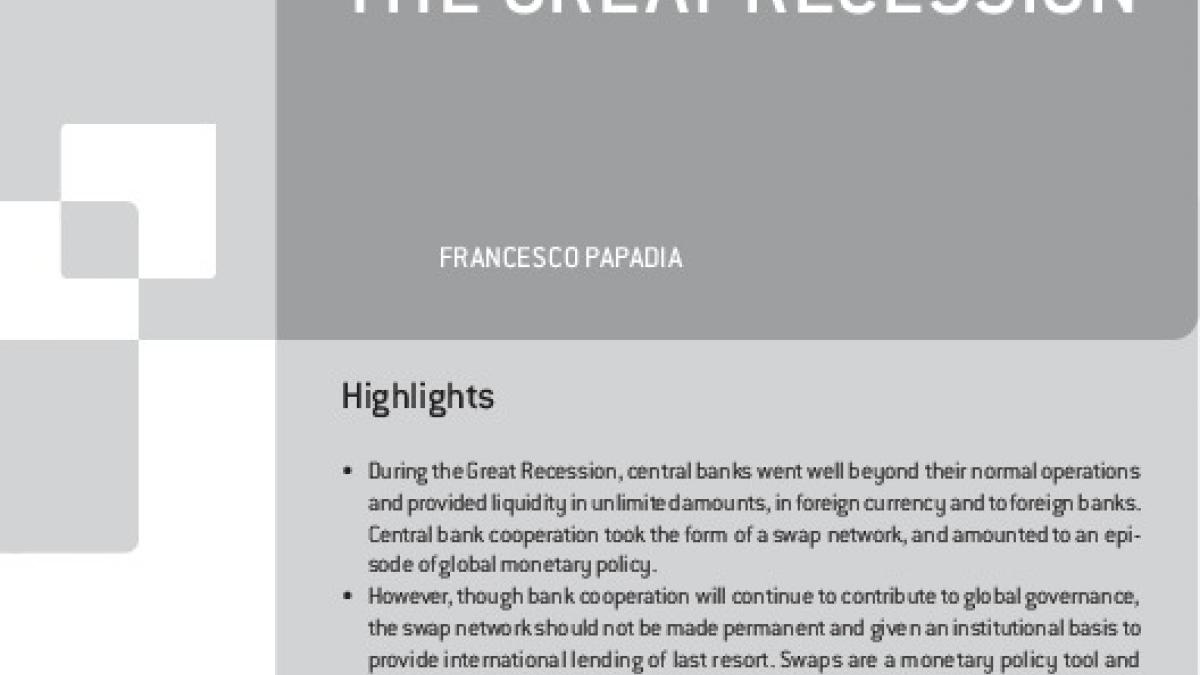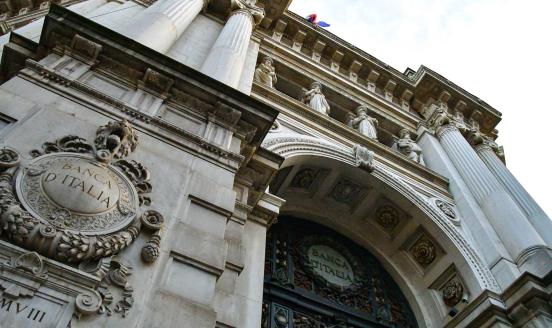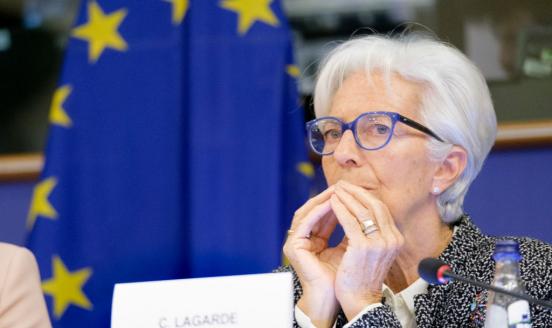Central bank cooperation during the great recession
During the Great Recession, central banks went well beyond their normal operations and provided liquidity in unlimited amounts, in foreign currency an

However, though bank cooperation will continue to contribute to global governance, the swap network should not be made permanent and given an institutional basis to provide international lending of last resort. Swaps are a monetary policy tool and should continue to be decided on by central banks like all other monetary policy tools,to avoid impinging on their independence, which a difficult historical process has shown to be the best basis for price stability.
In comments appended to this Policy Contribution, Edwin Truman, Senior Fellow, Peterson Institute for International Economics, concludes in favour of making the swap network permanent, while William Dudley, President of the Federal Reserve Bank of New York, stresses the importance of central banks around the world being able to coordinate closely so that there can be a viable, credible backstop on a global basis.



